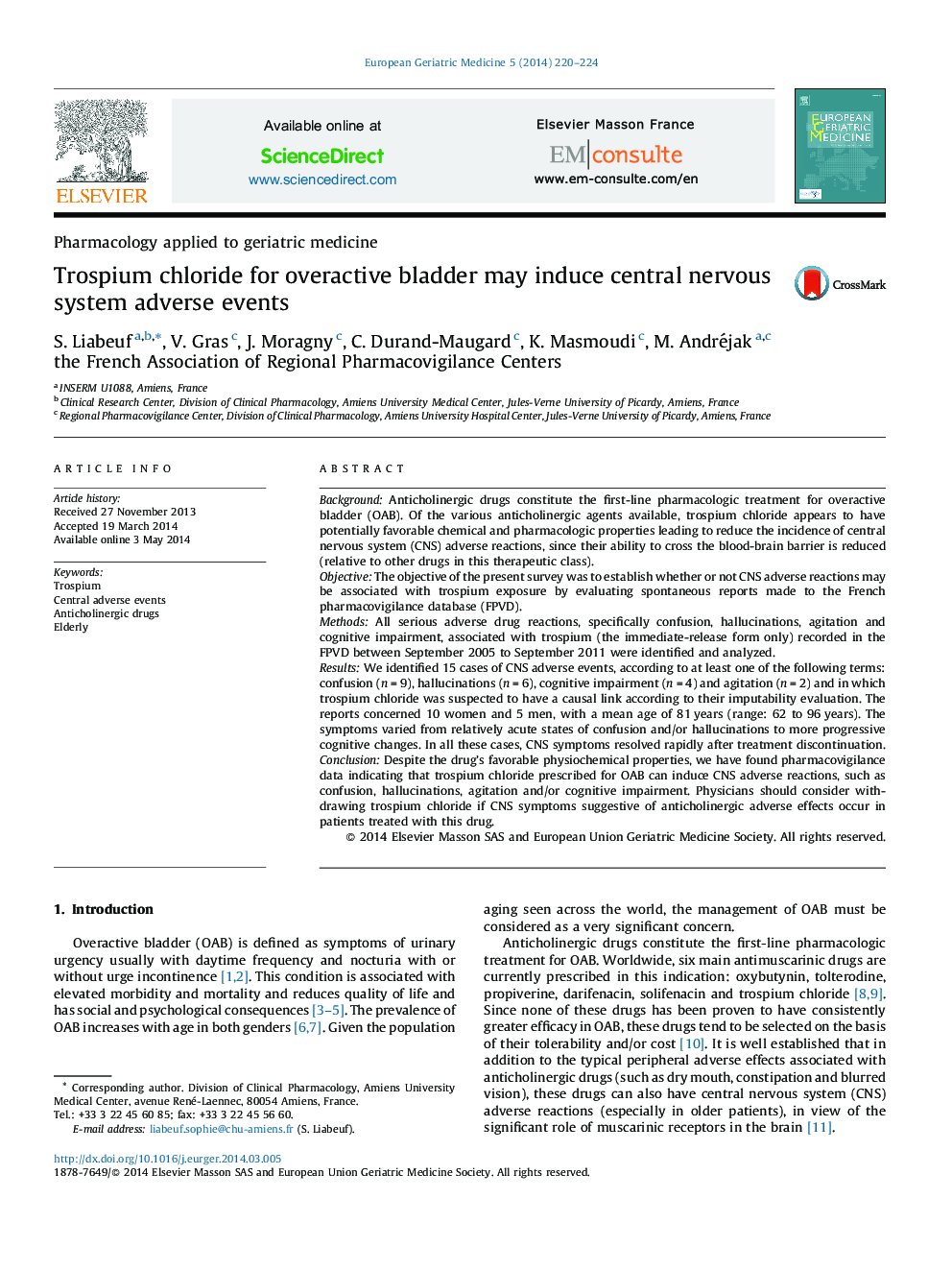| Article ID | Journal | Published Year | Pages | File Type |
|---|---|---|---|---|
| 3324607 | European Geriatric Medicine | 2014 | 5 Pages |
BackgroundAnticholinergic drugs constitute the first-line pharmacologic treatment for overactive bladder (OAB). Of the various anticholinergic agents available, trospium chloride appears to have potentially favorable chemical and pharmacologic properties leading to reduce the incidence of central nervous system (CNS) adverse reactions, since their ability to cross the blood-brain barrier is reduced (relative to other drugs in this therapeutic class).ObjectiveThe objective of the present survey was to establish whether or not CNS adverse reactions may be associated with trospium exposure by evaluating spontaneous reports made to the French pharmacovigilance database (FPVD).MethodsAll serious adverse drug reactions, specifically confusion, hallucinations, agitation and cognitive impairment, associated with trospium (the immediate-release form only) recorded in the FPVD between September 2005 to September 2011 were identified and analyzed.ResultsWe identified 15 cases of CNS adverse events, according to at least one of the following terms: confusion (n = 9), hallucinations (n = 6), cognitive impairment (n = 4) and agitation (n = 2) and in which trospium chloride was suspected to have a causal link according to their imputability evaluation. The reports concerned 10 women and 5 men, with a mean age of 81 years (range: 62 to 96 years). The symptoms varied from relatively acute states of confusion and/or hallucinations to more progressive cognitive changes. In all these cases, CNS symptoms resolved rapidly after treatment discontinuation.ConclusionDespite the drug's favorable physiochemical properties, we have found pharmacovigilance data indicating that trospium chloride prescribed for OAB can induce CNS adverse reactions, such as confusion, hallucinations, agitation and/or cognitive impairment. Physicians should consider withdrawing trospium chloride if CNS symptoms suggestive of anticholinergic adverse effects occur in patients treated with this drug.
